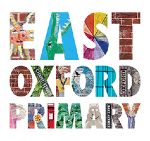Safeguarding
If you have any concerns about the wellbeing of a child, you can email safeguarding@eastoxfordprimary.co.uk
We are committed to ensuring that all our children grow up in an environment where they are safe and well cared for.
Safeguarding is a key priority which pervades our school. Russell Kaye, Bridget Ledger-Doyle and Jane Heneghan have received specialist safeguarding training and we work closely with social care where our families need additional support. The head teacher is responsible for Child Protection within school, and our Deputy for Looked After Children. All staff are vetted at the point of recruitment, and have regular training to ensure that their safeguarding knowledge is up-to-date..
From time to time, our children and their families may require additional support. Teachers and senior staff make themselves available at the start and end of each school day so that you can tell us about anything at home which may be affecting your child. We work with external partners to provide therapy, counselling and targeted pastoral care for children who are in need of support. We have a Home-School Link Worker who can support parents and/or direct them towards other agencies who will be able to help. As with all schools, if we are concerned about a child, we may need to make a referral to social care.
You can read our Child Protection and other safeguarding policies here.
Please also read our Information for Visitors and Volunteers
We are committed that our children are protected from radicalisation and extremism.
Prevent is a government strategy designed to stop people becoming terrorists or supporting terrorist or extremist causes.
The Prevent strategy covers all types of terrorism and extremism.
Educate Against Hate – https://educateagainsthate.com/
This is an important government website that provide advice and information about protecting children from extremism and radicalisation. Please note the poster in the staff corridor.
The Prevent strategy is not just about discussing extremism itself, which may not be appropriate for younger children. However, it is about teaching children values such as tolerance and mutual respect.
Importantly, we can provide a safe place for pupils to discuss any issues so they better understand how to protect themselves.

